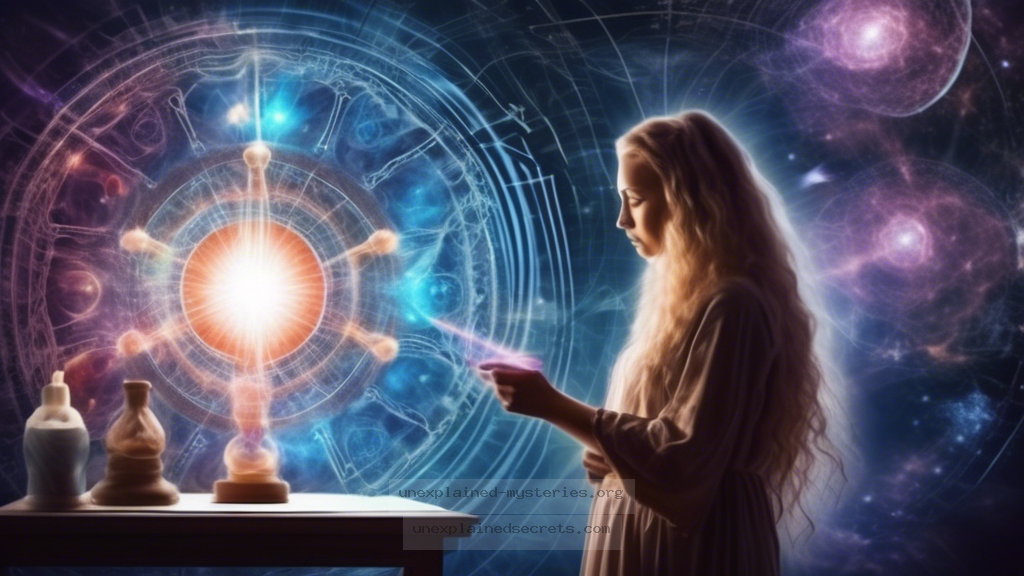Can Scientific Testing Validate the Existence of Psychic Abilities?
Can Scientific Testing Validate the Existence of Psychic Abilities?
The question of whether psychic abilities truly exist has captivated humanity for centuries. From the ancient prophets to modern-day psychics, stories of extraordinary perceptual capabilities abound. However, the intersection of science and the paranormal remains fraught with skepticism and intrigue. In this blog post, we will dive deep into the question of whether scientific testing can validate the existence of psychic abilities, exploring historical contexts, documented cases, core concepts, and much more.
Introduction to Psychic Abilities
Psychic abilities, often referred to as extrasensory perception (ESP), encompass a range of phenomena including telepathy, clairvoyance, and precognition. These abilities are said to allow individuals to receive information outside the traditional five senses. The enduring interest in psychic phenomena can largely be attributed to the human desire to understand the unknown and the potential for unexplained insights into our lives.
Historical Context of Psychic Studies
The scientific study of psychic abilities gained momentum in the late 19th and early 20th centuries. Organizations such as the Society for Psychical Research (SPR) were established to investigate claims of psychic phenomena through rigorous methodology. One notable figure was J.B. Rhine, a psychologist at Duke University, who conducted experiments with cards to test for ESP. His work laid the foundation for parapsychology as a field of scientific inquiry.
Did you know? The term “parapsychology” was coined in the early 20th century to describe the scientific study of psychic phenomena.
Core Concepts of Psychic Abilities
Psychic abilities are often categorized into several types: telepathy (mind-to-mind communication), clairvoyance (gaining information about an object or person without the use of the senses), and psychokinesis (the ability to move objects with the mind). Each of these abilities is supported by anecdotal evidence but lacks robust scientific validation. Theories surrounding psychic phenomena often touch upon quantum mechanics, consciousness, and the nature of reality itself, suggesting that the universe may hold more than meets the eye.
Scientific Testing: Methods and Challenges
Testing psychic abilities scientifically involves controlled experiments designed to eliminate the influence of chance or deception. One common method is the use of Zener cards, which consist of five symbols (circle, plus sign, waves, star, and square) used to test for telepathy and clairvoyance. However, despite numerous studies, reproducibility remains a significant challenge, as many experiments yield inconclusive results.
| Method | Description | Challenges |
|---|---|---|
| Zener Cards | Cards used to test for ESP by having one participant try to guess the symbol chosen by another. | Low reproducibility and skepticism about experimental controls. |
| Remote Viewing | Participants attempt to describe or draw a target object or location that is hidden from them. | Results often criticized for lack of rigorous controls and statistical significance. |
| Brain Scans | Neuroscientific studies using fMRI or EEG to explore brain activity during claimed psychic episodes. | Correlation does not imply causation; difficulty in isolating variables. |
Documented Cases of Psychic Phenomena
Throughout history, there have been numerous documented cases that claim to demonstrate psychic abilities. One of the most famous is the case of Nina Kulagina, a Russian woman who reportedly demonstrated psychokinetic abilities. In televised experiments during the 1960s, she appeared to move objects on a table without physical contact. Despite the intrigue, skeptics argued that the experiments lacked proper controls and could have been subject to trickery.
Practical Implications of Psychic Abilities
If psychic abilities were scientifically validated, the implications could be profound. They could revolutionize fields such as psychology, medicine, and even law enforcement, offering new methods for understanding human behavior and decision-making. However, the lack of scientific consensus means that psychics often face skepticism, preventing them from gaining widespread acceptance in the scientific community.
Notable Fact: The U.S. government funded research into psychic phenomena during the Cold War, including programs like Stargate Project, which aimed to investigate potential military applications of psychic abilities.
Alternative Perspectives and Criticism
Many scientists remain skeptical about the existence of psychic abilities, citing the lack of empirical evidence and the challenges of reproducibility. Critics argue that what may appear to be psychic phenomena could instead be attributed to cognitive biases, chance, or the power of suggestion. The placebo effect and other psychological factors can also play significant roles in perceived psychic experiences.
Common Misconceptions About Psychic Abilities
One prevalent misconception is that all psychics possess the same abilities or that they can control their powers at will. In truth, experiences among those who claim psychic abilities can vary widely. Some may only experience flashes of insight, while others report a consistent ability to access information. Furthermore, many psychics emphasize that their skills require practice and are not merely parlor tricks.
Best Practices for Investigating Psychic Claims
For researchers or individuals interested in exploring psychic phenomena, a few best practices can enhance the investigation process. First, always employ rigorous scientific methods to minimize bias. Second, maintain a balanced perspective, being open to both affirming and disconfirming evidence. Lastly, consider the context and background of the individual making the claims, as personal experiences and cultural factors can influence perceptions of psychic abilities.
Future Developments in Psychic Research
The future of psychic research may hinge on advancements in technology and our understanding of consciousness. Studies using neuroimaging techniques may provide new insights into the brain’s role in perceived psychic experiences. Additionally, interdisciplinary collaborations between scientists and parapsychologists could foster more rigorous and open-minded investigations into this enigmatic topic.
Conclusion: The Ongoing Quest for Understanding
The question of whether scientific testing can validate the existence of psychic abilities remains open-ended. While historical accounts and documented cases provide intriguing evidence, the scientific community continues to grapple with the challenges of reproducibility and skepticism. As we advance our understanding of consciousness and the universe, we may eventually unlock the mysteries surrounding psychic phenomena. Until then, the allure of the unknown will continue to inspire curiosity and exploration. 💡
Other Articles
Recent Posts
- What Happened to Flight MH370? The Conspiracy Theories That Still Haunt Us
- What Secrets Lurk Within the Walls of the Infamous Trans-Allegheny Lunatic Asylum?
- What Evidence Supports the Existence of Bigfoot in the Pacific Northwest?
- What Happened to the Indus Valley Civilization? Unraveling the Mysteries of Ancient Urban Life
- Can Telepathy Be Scientifically Proven Through Laboratory Evidence?







